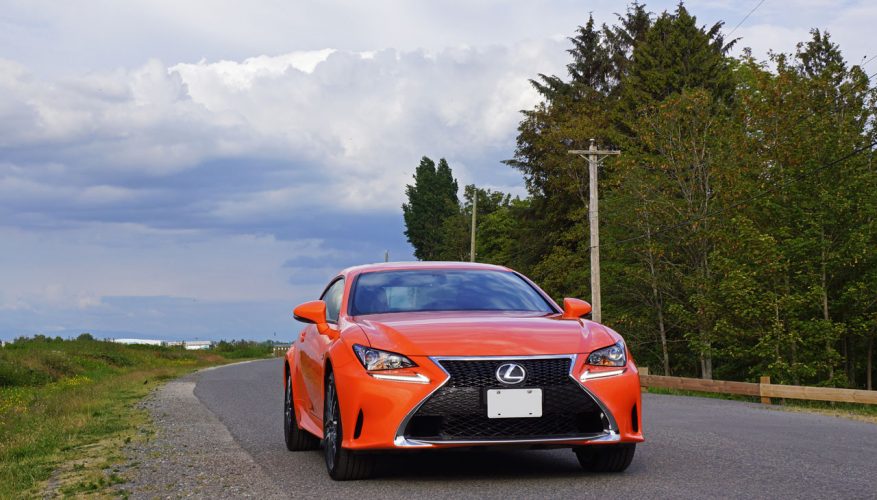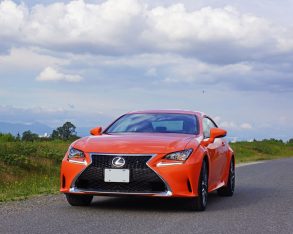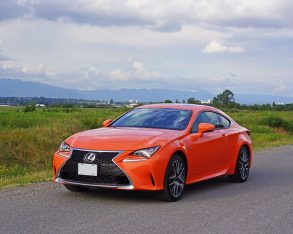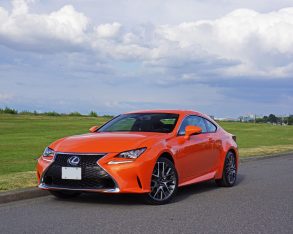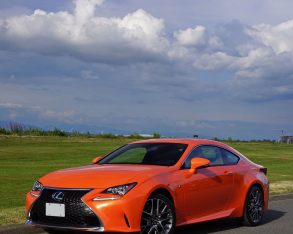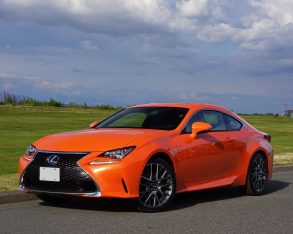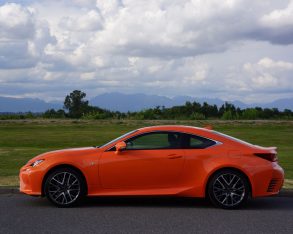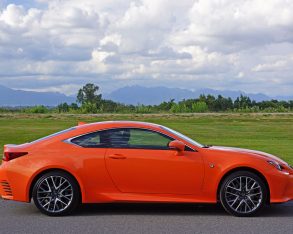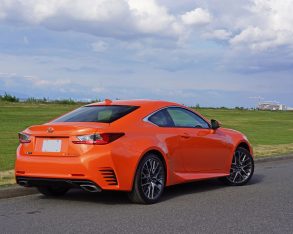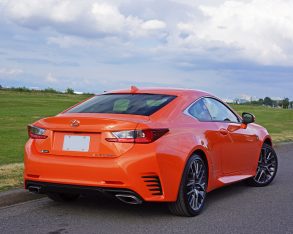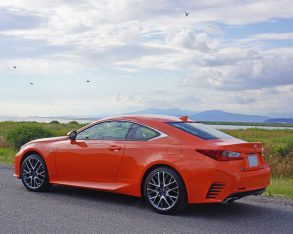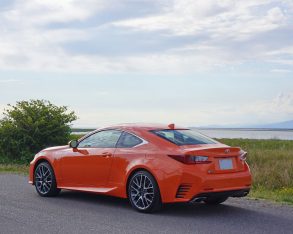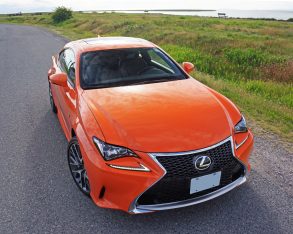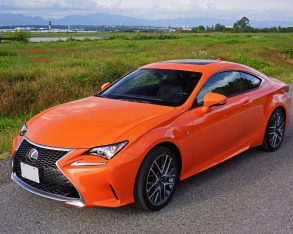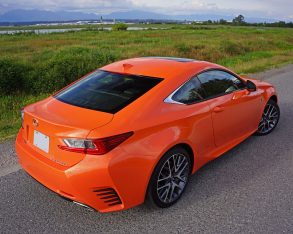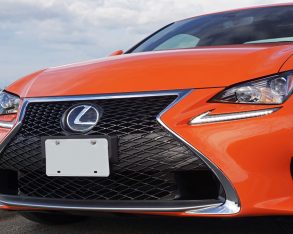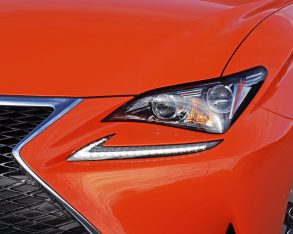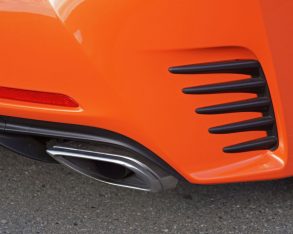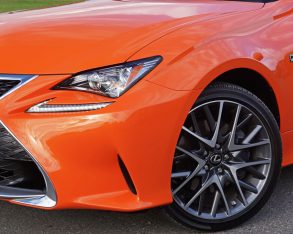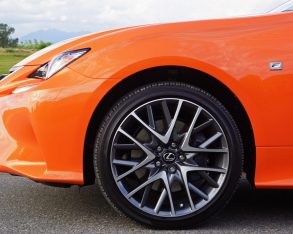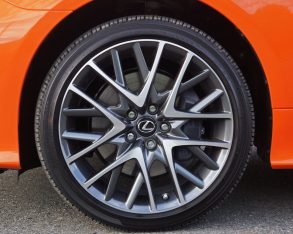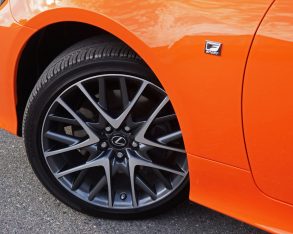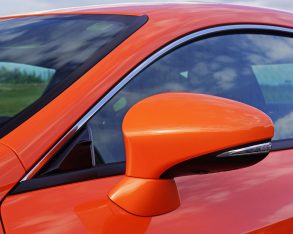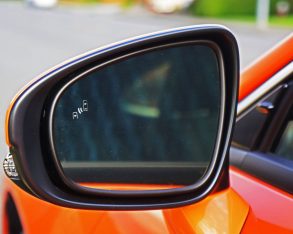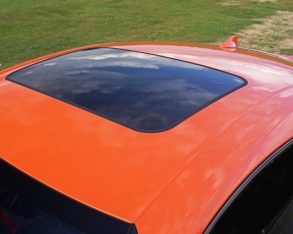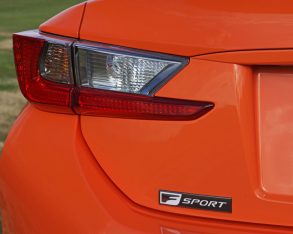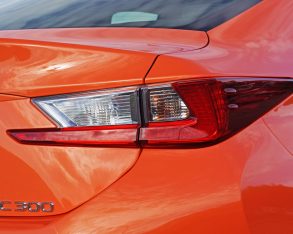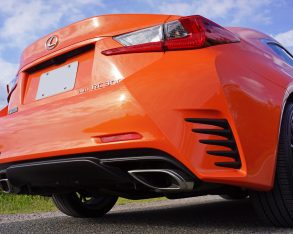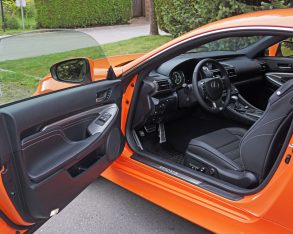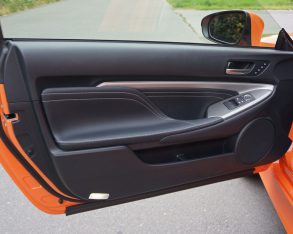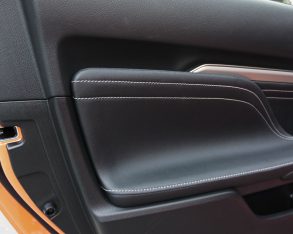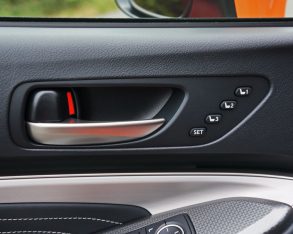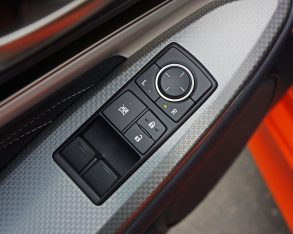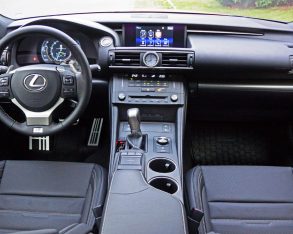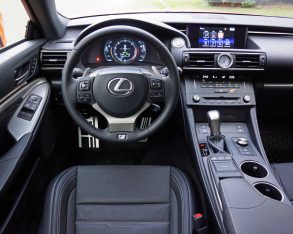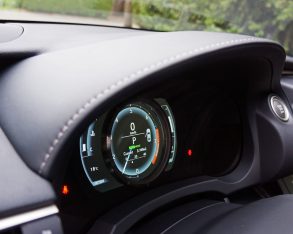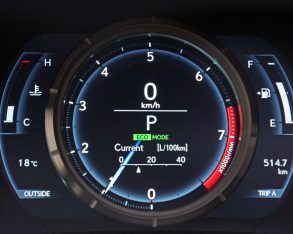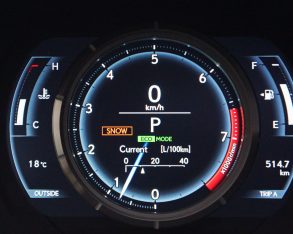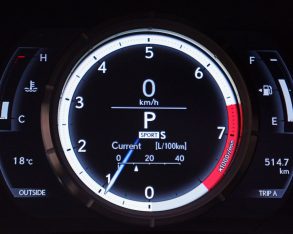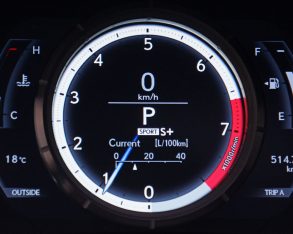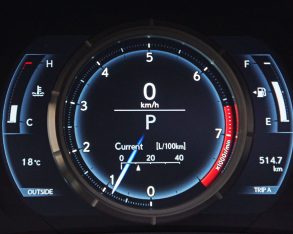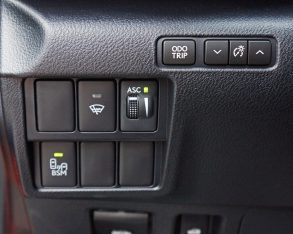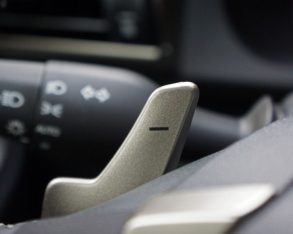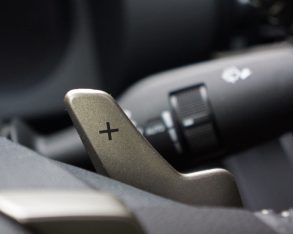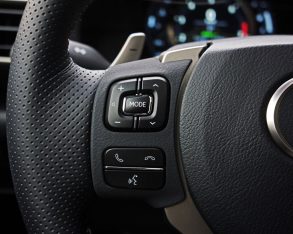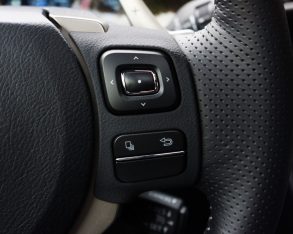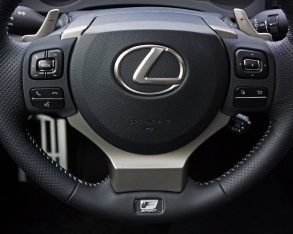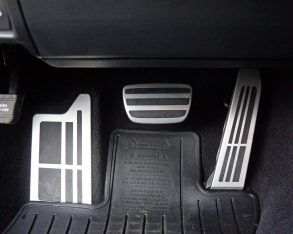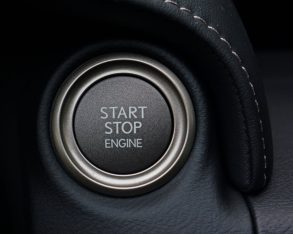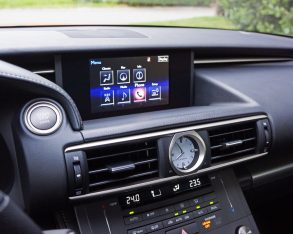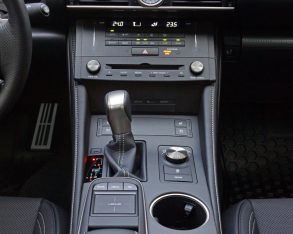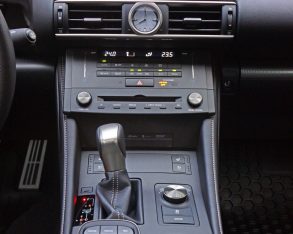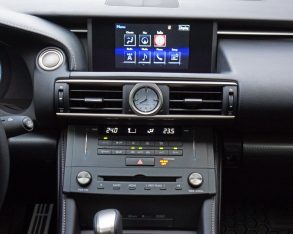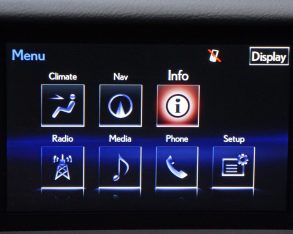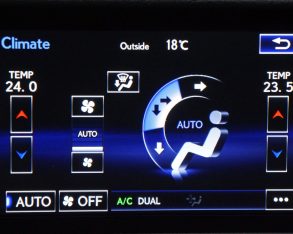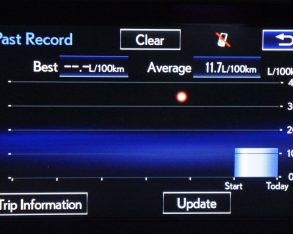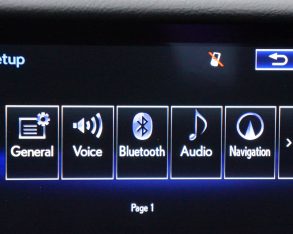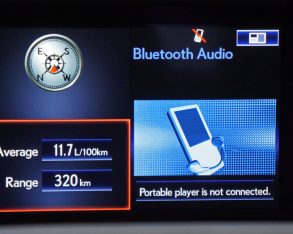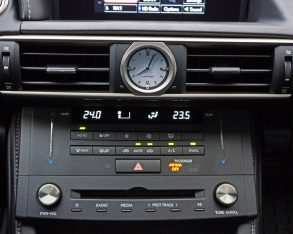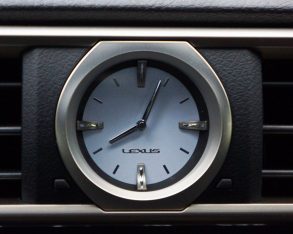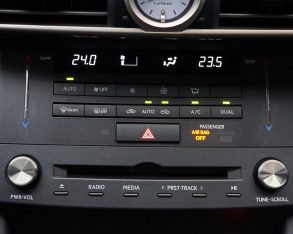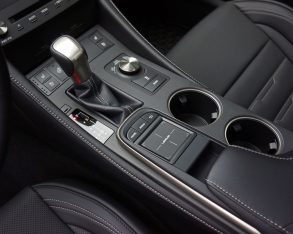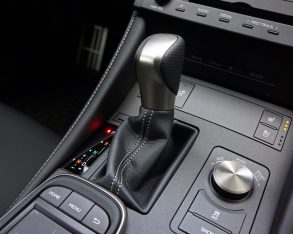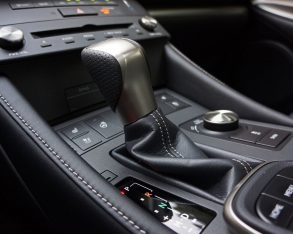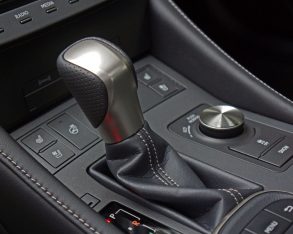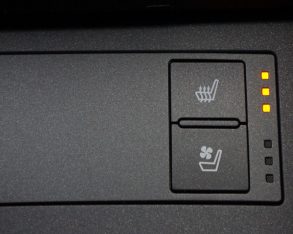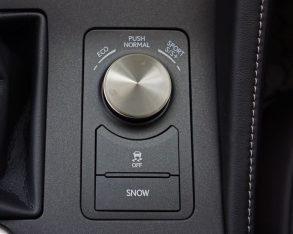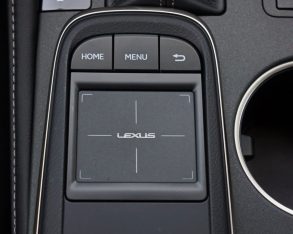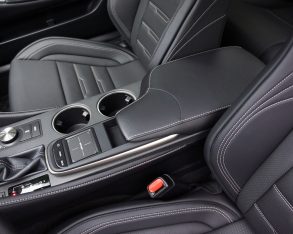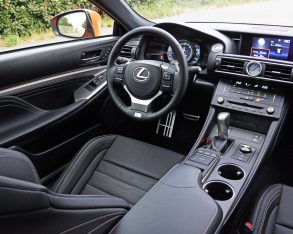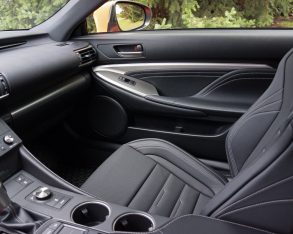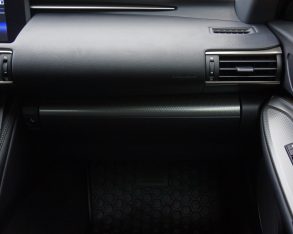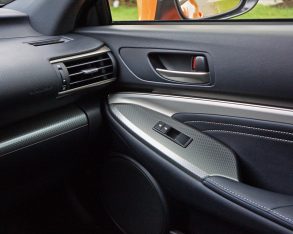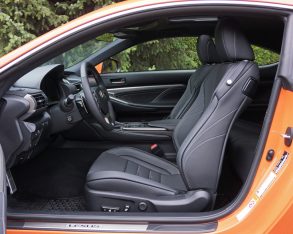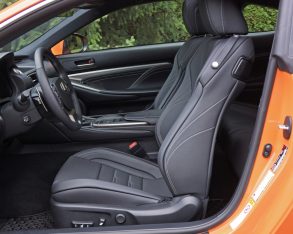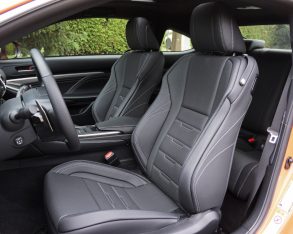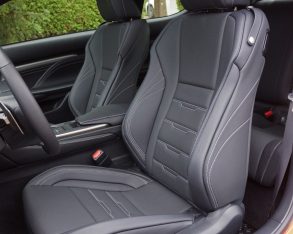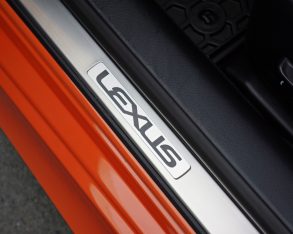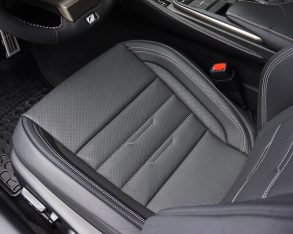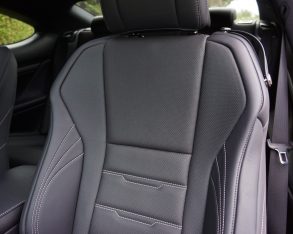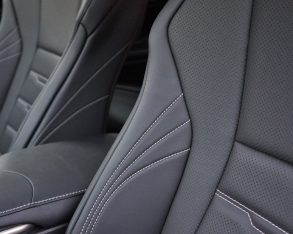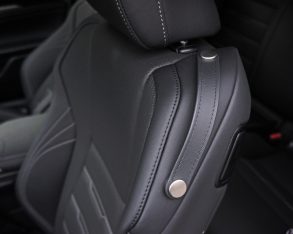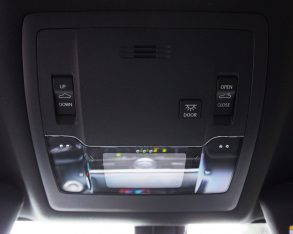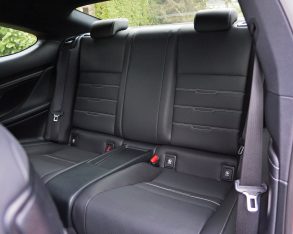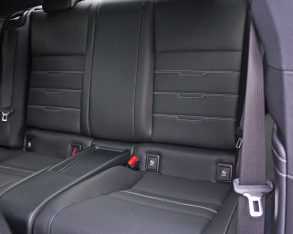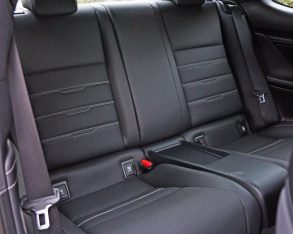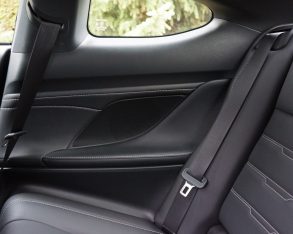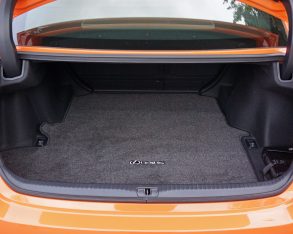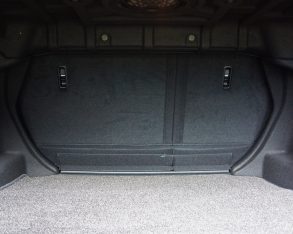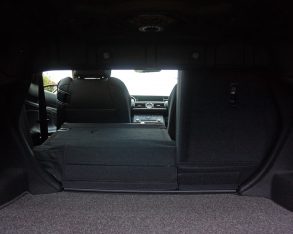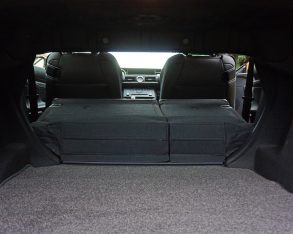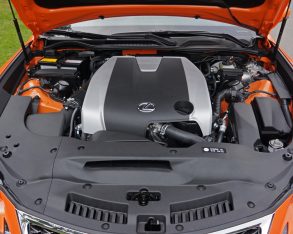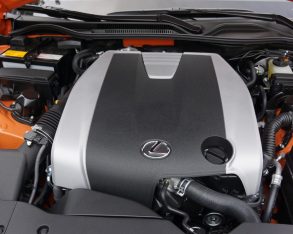 |
| Photo: Trevor Hofmann, Canadian Auto Press |
The RC F is a 467 horsepower V8-powered rear-drive super coupe competing with the likes of BMW’s M4, Cadillac’s ATS-V Coupe, Mercedes-AMG’s C63 Coupe, and I suppose Infiniti’s new Q60 Red Sport 400 as well, whereas the RC 300 AWD F Sport only looks as if it can leave 90 percent of its four-wheeled rivals in a tire-smoking whirlwind of bruised egos. In reality its 3.5-litre V6 merely makes 255
 |
| Photo: Trevor Hofmann, Canadian Auto Press |
The Bavarian and Swabian challengers’ entry-level 428i xDrive and C300 4Matic sport coupes might not offer as much thrust as the entry-level RC at 241 horsepower apiece, but with 258 and 273 lb-ft of twist respectively, found from 1,450 and 1,300 rpm, they’re punchier off the line with zero to 100km/h sprints of 5.9 and 6.0 seconds apiece. In comparison our Canadian-spec base RC 300 AWD requires its naturally aspirated V6 to spin up to 4,800 rpm for peak torque, yet still manages a respectably quick 6.3-second sprint to 100km/h.
Not
 |
| Photo: Trevor Hofmann, Canadian Auto Press |
Of interest, Lexus offers an RC Turbo south of the border, this model utilizing the same 2.0-litre turbocharged four-cylinder as the brand’s NX 2.0t SUV and new ’17 IS
 |
| Photo: Trevor Hofmann, Canadian Auto Press |
You may have noticed the U.S.-spec RC Turbo’s engine output is identical to the BMW’s 428i, so why is it a second and a half slower to 100km/h? Curb weight. Most of the four-cylinder models in this class, including the RC 2.0t, utilize eight-speed automatics (with the odd six-speed manual and seven-speed autobox thrown in), so it’s not a lack of gears that holds the RC 2.0t back, but the RC is the
 |
| Photo: Trevor Hofmann, Canadian Auto Press |
Still, 6.3 seconds to 100km/h is plenty quick, and the big V6 sounds a lot better at full throttle than any competitive four-cylinder, an artificial mechanical soundtrack played through the audio speakers enhancing the experience. It spins up to 6,600 rpm before shifting on its own, completely ignoring my desire to let it rev higher before personally prompting its paddles, even when set to Sport Plus and manual modes, but I suppose this suits its hefty luxury coupe style.
Just
 |
| Photo: Karen Tuggay, Canadian Auto Press |
Success in mind, so far this year the 4 Series has outsold the RC by almost 10 to one,
 |
| Photo: Karen Tuggay, Canadian Auto Press |
Those that take an RC for a test drive will find one of the most appealing interiors in the class, especially if you like futuristic graphics on state-of-the-art high-resolution displays. The optional primary gauge cluster is a fully configurable TFT colour display inspired by the fabulous LFA supercar, which I happen to love (the
 |
| Photo: Karen Tuggay, Canadian Auto Press |
Likewise for the infotainment system atop the centre stack that’s also one of the best of its type, much thanks to its touchpad-style controller that allows tap, pinch, swipe and finger gestures for accessing most any function you can think of. It
 |
| Photo: Karen Tuggay, Canadian Auto Press |
Switchgear materials quality, fit, and damping is mostly excellent, and plastics quality is mostly soft touch, although I’m not sure why Lexus cheaped out on the lower dash, glove box lid and lower door panels that are all made from less than ideal hard plastics. That said the Japanese brand went over the top by covering the primary instrument shroud and sides of the lower console in the same contrast stitched padded leatherette as the floating door insert-cum-armrests, the look and feel richer than average, while
 |
| Photo: Karen Tuggay, Canadian Auto Press |
Some notable standard features in this entry-level trim include auto-leveling LED headlamps, LED DRLs, LED fog lamps, LED taillights, LED puddle lamps, proximity access, pushbutton ignition, heatable power-adjustable side mirrors, a heatable tilt and telescopic leather-wrapped multifunction steering wheel, cruise control, a garage door opener, filtered dual-zone auto HVAC, an auto-dimming rearview mirror, a seven-inch infotainment display, a backup camera with dynamic guidelines, 10-speaker audio, dual USB inputs, heatable eight-way powered front seats, NuLuxe faux leather upholstery, LED ambient lighting, a powered moonroof, all the usual active and
 |
| Photo: Karen Tuggay, Canadian Auto Press |
As noted my tester was upgraded with the F Sport package, which for $5,350 adds the aforementioned 19-inch alloys on 235/40R19 rubber and full TFT instrument cluster, plus unique exterior styling including the front fascia and grille, aluminum pedals, rain-sensing wipers, a sport steering wheel, ventilated sport seats, a powered tilt and telescopic steering column, memory for the seats, side mirrors and steering column, navigation with detailed mapping, active sound control, a single DVD changer, an adaptive variable suspension, plus blindspot monitoring with rear cross-traffic alert.
The
 |
| Photo: Karen Tuggay, Canadian Auto Press |
Now that we’re talking practicalities, I averaged 11.8 L/100km during my weeklong drive, which is right where it should be considering its claimed 12.6 city, 9.2 highway and 11.1 combined rating. Still, this makes it the thirstiest amongst its four-cylinder peers, at least when it comes to five-cycle EnerGuide tests. Oftentimes
 |
| Photo: Karen Tuggay, Canadian Auto Press |
Yes, the RC 300 AWD isn’t perfect, but it’s a credible first effort from a brand that’s never built a two-door performance hardtop in the D-segment before, and it looks fabulous. Of course, I’m very aware that styling is personal and therefore not all will share my enthusiasm, but I received a lot of thumbs up throughout my test week as well as positive comments from passersby when photographing it next to a popular riverfront pathway near my home, so I’m certainly not alone.
If you’re looking for a luxury sport coupe with a more refined approach, the RC is a good choice.
©(Copyright Canadian Auto Press)



